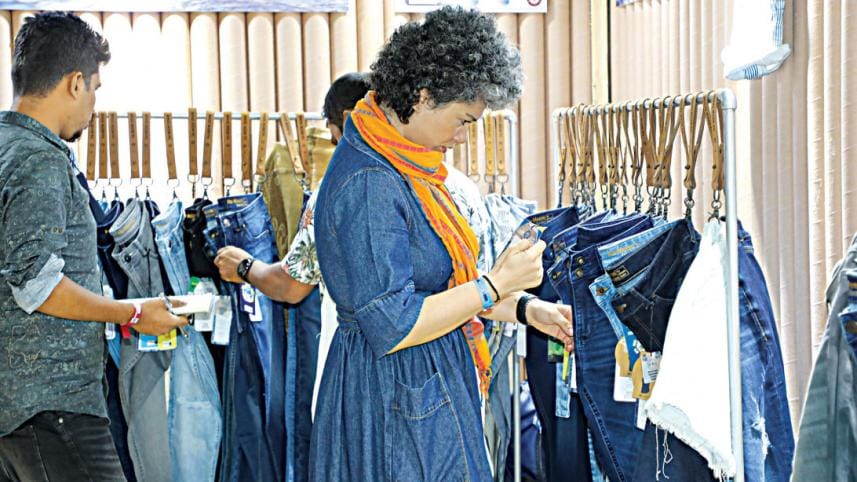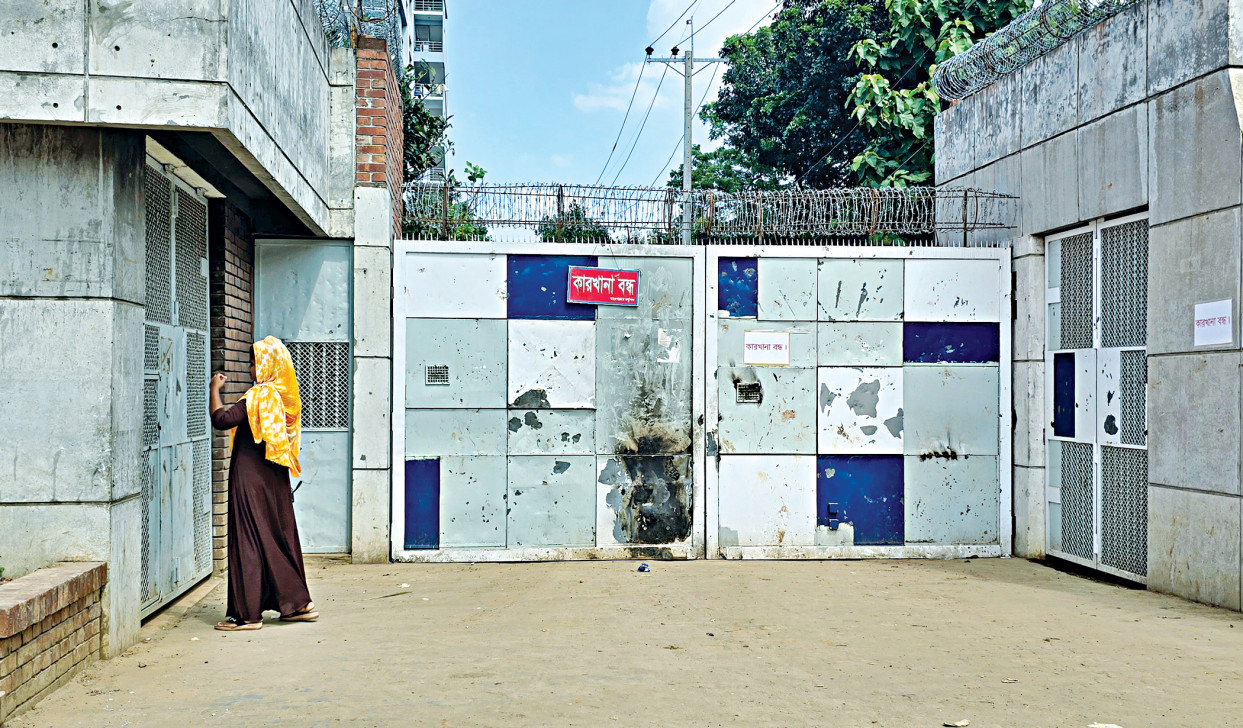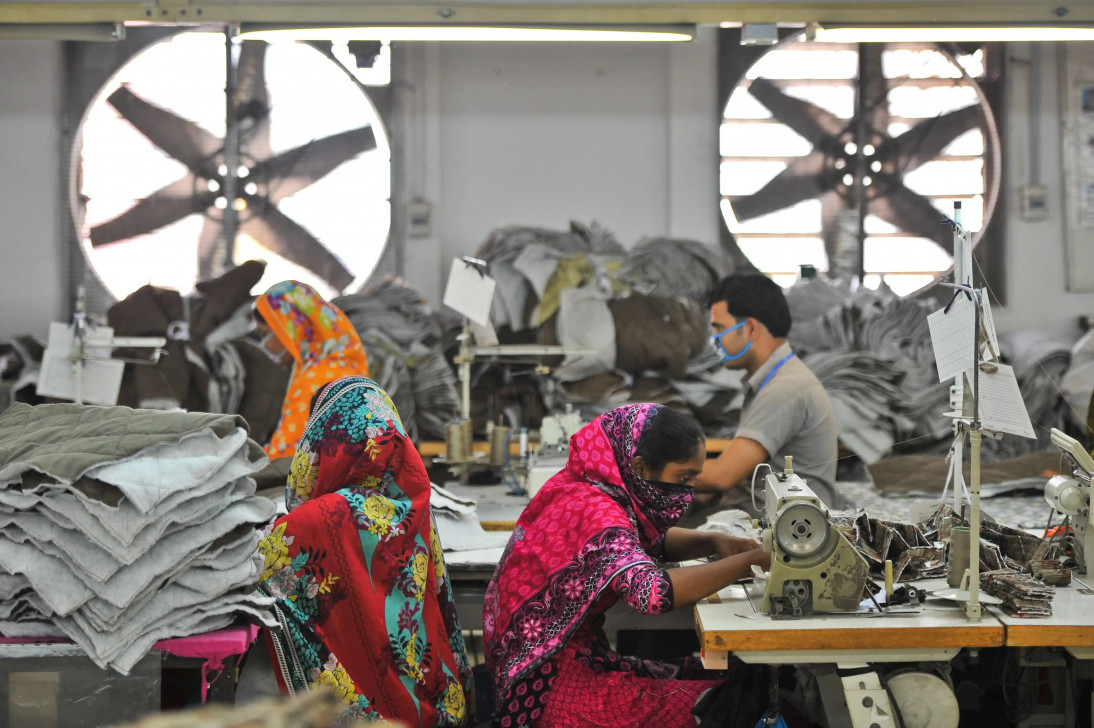A story of expansion, crisis and missed opportunities

Starting the journey from the 1980s down to now, the readymade garment industry has been an ironical tale of success and censure. On one hand, the industry boasts of employing almost four million people, the majority of whom are women, yet on the other, the questions on wages have haunted the sector for too long. What made the sector grow and what brought in the discourse of low wages?
When the industry started with only a few factories exporting only $120 million worth of goods in the 1980s, things were different. Buyers had discovered a market where labour was cheap and production standards were hardly audited. Quite frankly, no one knew any better as long as the end of the line produced a decent shirt or a T-shirt. The story ended there. With time, the market opened up with the number of factories increasing and more buyers coming in to explore the market.
The BGMEA expo was then held in the erstwhile Sonargaon, with a full 200,000 square feet or so sprawled with manufacturers and products. Few buyers came then but the number grew with time. I clearly remember the intense exchange of cards, followed by fax and telex messages with buyers, frantic phone calls to secure the orders and then watching the flow of conversation settle in on prices. In those days, manufacturers mostly brought in the raw materials from China, including the most basic poplins and the factories carefully calculated the lead time and offered the products to the buyers. Once the order was executed, the buyer returned for more. And the process went on and eventually grew. Back then, we were hardly on time, a delay of 10 days or so would mean a slight rebuke from the buyer, 20 would bring in a threatening phone call, and 30 a threat of sea-air combination to make the goods reach on time to hit the stores. The buyers would then also invite us to be present at stores and watch the goods being bought. But that was the early 1990s.
In those days, business meant lagging samples in suitcases, ironing samples on the hotel ironing boards and setting up racks in the buyer's offices and displaying the products with both trepidation and pride. Negotiation was easy as both parties were trusting. With the 2010 Everything but Arms offer from the EU—and a 12.5 percent duty advantage—Bangladesh became super keen to grow the number of factories. Banks believed the manufacturers. Buyers trusted their sources and then the number of factories grew, and the demands to produce more piled up.
That is where we went wrong. The government and the sector both. That was the time when the entrepreneurs could have diversified into other sectors, grown capabilities of producing more value-added items, and the sector could have taken some challenging strides and made the country grow in terms of economic complexity. Instead, the madness to grow capacities led to most manufacturers dropping prices to keep the wheels of the bus running. Unfortunately, little did the entrepreneurs realise that it wasn't about dancing to the music of the economies of scale, it was also about balancing business with community. I sincerely believe that if we had then stepped up and negotiated better prices and vied better products, we would have made it.
By "making it," I mean making it in the real sense in a real scenario where Tazrin and Rana Plaza wouldn't have happened. The outcry that followed April 24, 2013 was unmanageable and the backlash was too severe to overcome. Not only did the nation suffer a collective tragedy, but the whole RMG community was slapped with the strictest set of compliance codes that shaped the sector forever. What came in was a critical examination of fire, electrical and structural integrity. Owners rushed to make their factories green to add the extra icing on the manufacturing cake, but in the process the sector failed to bargain for better prices. Keeping factories occupied mattered the most, at ANY cost.
Quite naturally, we have been unable to sport a better image for the sector to the world. So, every time a Western consumer walks into the store and checks the manufacturing source, they don't question the quality, but the ethical integrity of the product. And this is where the sector has failed the most. In the absence of a decent ambassadorship in the industry, all we have had was censure from home and abroad. Reference to labour rights and decent wages have almost become a slogan and no one in or outside Bangladesh believes that there aren't any decent margins to pay the wages that the workers need to receive in order to lead a decent life.
Manufacturers, totally tuned in to sustainability, have managed to take pride in world class factories, stepping out of which at the end of the day, the workers return to their non-green homes. While the products bear the sustainability tags, the lives of those who produce the products aren't quite the same.
Here are a few facts and suggestions: i) Prices must immediately be reconsidered by buyers and adjusted by at least 10 percent considering the call for routine wage reviews; ii) Tags attached to the products must have bar codes containing the human stories of the workers in the factories so that the Made in Bangladesh with Pride just doesn't end up being the sector's slogan but has the endorsement of the people who make them in the factories; iii) Manufacturers must make it a policy not to quote lower and outbid the next factory in order to put an end to the cycle of low prices; iv) An immediate review of the borrowers must take place, so that the wilful defaulters can be taken to task, and the genuine borrowers, including "sick factories" facing hardship, can be given assistance to get back on track or be gracefully led to exit the industry; v) Buyers must pledge to place better products in Bangladesh and be prepared to embark on a sourcing challenge by at least buying 10 percent of their premium products from factories they source from; vi) Government must review the basket of buyers sourcing from Bangladesh so that the deviant ones compromising in prices, practices and quality cease to exist—a commission to review prices and standards must be established; vii) Think tanks must pledge to work with the industry and provide solutions to responding to the needs of sustainable operations; viii) Non-wage benefits for workers must be considered by the government in collaboration with the private sector where the workers get food subsidies (or have access to Fair Price Shops in the factory), travel subsidies and last but not the least, assurance of decent rent as, subjected to the mastan landlords of the community; ix) A central fund of wages for workers must be set up by the government to face force majeure events like Covid and other unforeseen interruptions that continue to plague the sector from time to time; x) The workers need to be reskilled. In order to do that, education and reskilling centres must be set up all across the industry so that when robots start operating in our factories, our workers won't face job loss and this won't be possible without the active support of the government and the buyers and; xi) We should follow the Vietnam model of setting up collaborations between the MNCs and the aspiring entrepreneurs to immediately attempt sector diversification without which we will always be solely dependent on RMG.
While the private sector could have had better practices, it also grappled with intense price pressure and cannot afford to be any better than now. With changes sweeping through the country, the private sector needs support with prices and the courage to assure buyers that Bangladesh not only offers great capacities but also offers great human stories that no other country in the globe can offer. We have the best workers who deserve a better life and we now have a new government that can bridge the gap between the Western perception and our reality.
All we need is a little margin to make it happen and it all boils down to decent prices from the buyers and government support to ensure stable law and order situation.
However, what the industry cannot afford is internal shaming. If there's a systemic problem, let's have an open mind and sit down to negotiate a better ground for the sector. Let's not waste time in finger pointing.
And for that, the sector needs the trust of all the stakeholders. Even the slightest tremor in the industry will be fatal for the nation. That is a realisation that came through multiple pressure points in Ashulia in just a few weeks.
During Covid, 1,055 factories in Gazipur paid Tk 1,580.68 crores as salary to 1.6 million workers and 198 factories in Ashulia paid Tk 305.45 crores to 284,000 workers. Apart from the 1,253 factories that took Covid loan support from banks, there are at least another 1,500 factories who fall under "deemed export." Therefore, the number of workers and the total salary are way above what is listed here.
Let us also remember that these are 2019 figures after which the minimum wage went through another revision in 2024. Which other sector can offer this level of employment is now an unpleasant puzzle for the policymakers to decide.
Dr Rubana Huq is vice-chancellor of Asian University for Women (AUW).
Views expressed in this article are the author's own.
Follow The Daily Star Opinion on Facebook for the latest opinions, commentaries and analyses by experts and professionals. To contribute your article or letter to The Daily Star Opinion, see our guidelines for submission.




 For all latest news, follow The Daily Star's Google News channel.
For all latest news, follow The Daily Star's Google News channel. 

Comments